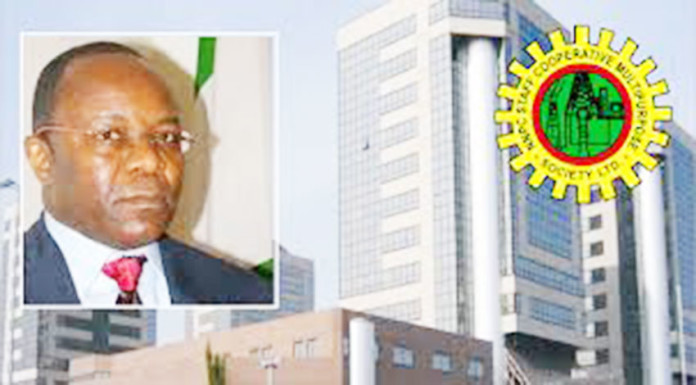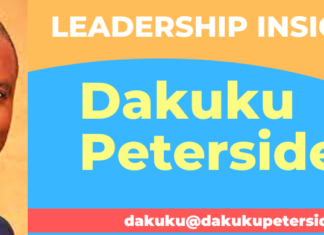Nigerian refineries are expected to produce about 10 million litres of petrol daily from January, next year about 25 per cent of the estimated daily demand of 40 million litres.
Dr Ibe Kachikwu, Minister of State for Petroleum, who disclosed this Sunday, also clarified that the Federal Government is not paying any fuel subsidy due to the current low oil prices.
The minister spoke to newsmen shortly after a tour of the Kaduna Refinery saiying that the combined production of the nation’s three refineries is expected to hit 10 million litres per day in January 2016, all things being equal.
Giving a breakdown, he said, “Kaduna is doing about 1.5 million litres; hopefully, it will be getting into two million very quickly once the FCC is working.
“Port Harcourt, when it comes back with a combination of VDU and the FCC, we will probably be looking at about five million litres. Ideally, we want to be able to get to about 10 million litres capacity out of the about 40 million litres that we say is the national consumption per day.
“If all things were equal, the maximum capacity for Kaduna will be in the two to three million range; Port Harcourt will probably be five and six million (litres) and Warri, if it comes, will be another three or four million. Warri is projected to come back between early and mid-January and I will say that by the end of January, if all things were working and we do not have any other complications arising from these ageing plants, we will expect to see 10 million litres.”
Speaking further on the volume of products expected from the refineries, Kachikwu explained that although the country would still import the product next year, it would, however, get up to 10 million litres of petrol from the refineries starting from the end of January when repair works are completed on them.
“When working at full capacity the refineries can produce a combined 40 million litres of fuel per day. ”
Against reports that the federal government has officially withdrawn fuel subsidy, Kachikwu clarified that the federal government is not paying subsidy at the moment due to low oil prices.
He said President Muhammadu Buhari has given approval to the Ministry of Petroleum Resources to monitor the market trends and make adjustments when the need arises.
According to him, when the prices begin to get up and affect the selling price of local products, “we will look at those trends and see how we can adjust our pricing.
“Today, when you look at prices, we have no subsidy; but prices remain low and that is what we need to do. It is the honesty in being able to sell products to Nigerians at affordable prices that make sense and relating it to the market sense, and also the honesty when you get to a point that the prices do not reflect the market trends, being able to do something about it.”
He disclosed that if there is an increase in the prices of crude oil next year, government will make the necessary adjustments and announce prices in January 2016, according to the market trend.
The minister said his concentration right now is to make sure that the refineries work, adding that ‘the more they work, the higher the chances of getting closer to the sort of pricing we are comfortable with.”
Speaking further, he said: “The President is very emphatic on this; he says, for now, he expects that products should be about N87. He has also given approval for us to be able to look at market trends and make adjustments as the need arises.
“So when you keep asking me if subsidy has been removed, at today’s price, there is no subsidy and that is why I have gone away from the use of the word ‘subsidy’ and have continuously said that I am more on the page of price modulation; how do we look to fluctuate with the market to reflect market dynamics?
“I don’t want to get caught in this ‘subsidy or no subsidy money provided in the budget or not’. I think what is critical is two-fold: one is that the amount that we spent in the past in providing what you might call monetary subsidy is huge; we have never been able to account for it and nobody has been able to account for the amount of corruption there,” he said.
On his assessment of the Kaduna refinery, he said the refinery currently produces about one million litres of fuel, translating to about 30 trucks daily, but that efforts are on to increase the capacity to about two million litres per day.
While assuring Nigerians that the current fuel scarcity will soon be a thing of the past, he said the receding queues would completely disappear in a matter of weeks.
Earlier on, Nigerian National Petroleum Corporation (NNPC) projected that the country will still rely on 75 per cent imports of fuel throughout the whole of next year.
Kachikwu said, “The future is that, Nigeria is still going to import fuel in 2016 and beyond. Best case situation is 25 per cent local and 75 per cent importation. Worst case is what we are experiencing now.
“Until we begin to get individuals who can co-relocate, we are going to be doing a mixture of local and importation of fuel to meet up demands. In the next few weeks, however, queues will disappear from fuel stations.”
The minister affirmed that the Kaduna refinery, in no time, will be producing more than two million litres per day capacity as soon as a Fluid Catalytic Cracking (FCC) unit is fully on stream.
He said: “We need to get it back to re-kit it to work well. We will do that with some level of production going on. Our concern is to have a consistent production and provision of products at all times.”
On subsidy and pricing, Kachikwu said: “We will not be fluctuating prices, we will take an average. Today, no subsidy; in January, we will look at the situation and announce it.”
On privatization, he said: “President Muhammadu Buhari has not approved any policy about selling the refineries.”
-Leadership/Vanguard















